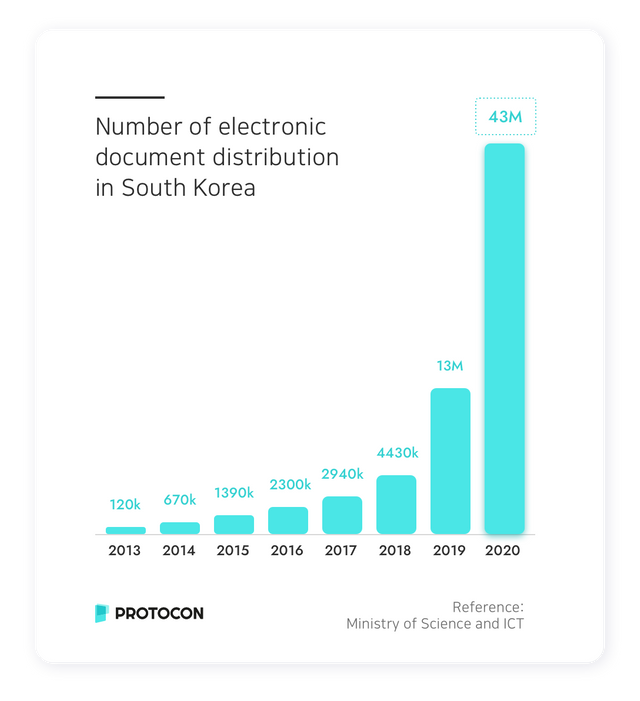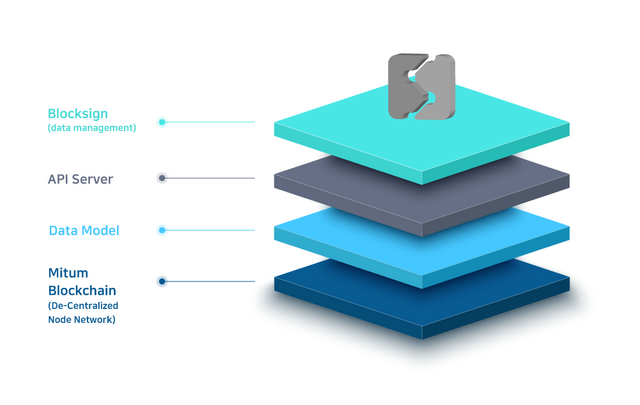What is Data Model?
What comes to your mind first when you think of electronic documents? Unlike paper documents, electronic documents may seem distant, but they are easily found in everyday life. An example of the electronic document is an electronic receipt. I'm sure you've received it at least once because quite a few places, including Starbucks, are now issuing electronic receipts instead of paper receipts! As such, electronic documents are already being commercialized. In particular, the most active electronic document management industry is the financial industry, with Bank of America that went paperless since 2018.

So, what's specifically good about going paperless, replacing paper to electronic documents?
The first advantage of going paperless is that it can reduce paper waste and is eco-friendly. Paperless companies can manage their businesses with environmental, social and governance (ESG) management by adopting electronic documentation. Then why hasn't such a convenient electronic document been commercialized in the meantime? Prior to the development of blockchain technology, electronic documents were recorded and managed on a central server, and thus were expensive to keep them securely. Even if it was kept at a cost, this method had a high risk of forgery and falsification of documents and a weak personal data security.
Do you remember Yahoo's 2013 personal data leak? 3 billion account information was leaked, and the leaked information contained the name of the account owner, password, phone number, and date of birth. The hacking turned out to be the work of government-sponsored hackers of a certain country, and this shocking incident has alerted individuals to be aware of their personal information on corporate databases. 8 years after this incident, we've moved from storing data on traditional central servers to utilizing blockchain technology, and we can manage electronic documents more securely, efficiently, and cheaply than ever before.
What are the advantages when electronic documents meet blockchain?
Let me introduce 4 benefits of using blockchain for electronic document management.
Electronic document management costs can be reduced.
- Blockchain can reduce file processing time and reduce server usage compared to traditional electronic signature management systems.
Safe document storage is possible.
- Can prevent forgery of electronic documents through blockchain. When unique identification values for a document are recorded on the blockchain, the documents that have been tampered with will produce unique identification values different from the original. This allows simple verification of the original.
The government cannot commit corruption with documents.
- Due to the nature of the blockchain, which is not managed by the central server and operates in a P2P manner, the government, in addition to falsification, cannot intervene in recorded documents.
Document sharing is easy.
- P2P type blockchain can save time and money spent on sharing document information because both parties have the information.
- P2P type blockchain can save time and money spent on sharing document information because both parties have the information.
Let's take a look at the projects that actually combine blockchain, which has various advantages, with document management.
First of all, there is Blocco, a Korean blockchain development company. Bloco has launched the AERGO mainnet and is operating a blockchain platform specialized in identity authentication, document management, and IoT that are for enterprises.
KT Paperless also supports 3 services that are for enterprises: contracting of digital documents, sending registered mail and sending documents on blockchain. Electronic contract services allow you to create electronic documents and are especially useful when you are signing many identical contracts. Electronic document archiving is a service that stores the original paper documents that are digitized and digital documents in a blockchain archive. This service is useful when you have lost a document or need proof because the cryptographic hash value is stored with the source.
Through E-Contract dApp, which is developed by smart contract and public chain, FimaChain provides management of contract progress as well as legal effectiveness and reliability of contract by letting the ledger visible to all.

The protocon network also introduced the concept of a data model to efficiently manage data through blockchain. The data model is a model that implements various functions needed to manage digital data and documents and ensures the originality and uniqueness of digital data by checking the originality of the data and wireless, managing document change histories, etc. Blocksign, a dApp service, is a blockchain-based document storage and authentication service that grafts data management to blockchain alike the services introduced above. Blocksign, which will be released in the first half of 2021, is going to be discussed in detail so keep in touch and check out our future posting as well.
Official Protocon Links
Twitter
Facebook
Medium
Reddit
Github